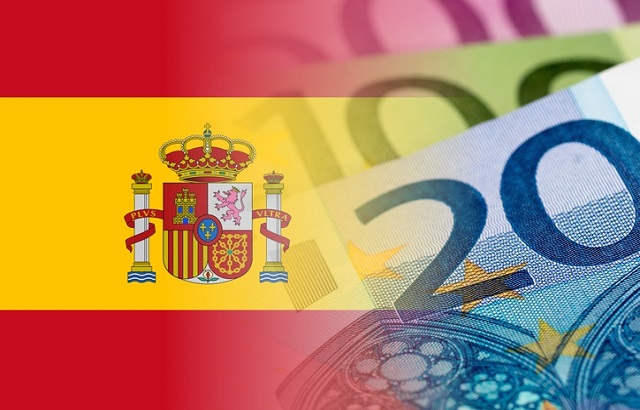The Spanish government has set out plans to raise taxes in its National Budget Bill.
The measure will impact personal income and wealth taxes, as well as some additions to gifting and inheritance rules from 1 January 2021.
The main changes affect the country’s top earners, meaning that ultra- and high net worth (HNW) individuals will be the ones taking the hit.
For those whose employment-related income exceeds €300,000 (£270,290, $355,841) a year, taxation will rise by two percentage points to 47%, law firm Baker McKenzie explains.
But the ultimate maximum rate is set by each region – also knows as autonomous community. For instance, in Catalonia this will be set at 50%, while in Madrid the rate is 45.5%.
Plethora of increases
Other changes related to income tax include:
- Savings income exceeding €200,000 a year with marginal rate tax set at 26% from 23%;
- Workers posted to Spain whose income surpasses €600,000 per annum will now be hit with a top rate of 47%, up from 24%. The highest rate only applies to income over the €600,000 mark, while money below the limit will be taxed at 24%. Additionally, tax on any income arising from dividends, interest or capital gains will go up by 3% for any sum over €200,000;
- People who have a Spanish ‘pension plan’ will see their contribution for tax purposes slashed to €2,000, down from €8,000. Baker McKenzie said, however, that the “limit will be set at €8,000, provided that the increase comes from company contributions and does not exceed 30% of the sum of net income from employment and economic activities received by the individual in the tax year”.
Sam Barber, principal at SJB Global, part of the Nexus Global IFA network, told International Adviser that the measure “will push out UHNW retirees as well as higher income earners and investors to look at more favourable jurisdictions to retire”.
“In addition, reducing the taxpayers´ contribution to €2,000 into a Spanish private pension is going to put a huge strain on the already uncertain Spanish state pension for future generations but provides an opportunity for clients to invest into other favourable tax wrappers such as a Spanish Compliant Bond.”
Exemptions
Those who find themselves in the highest tax band will need to pay an additional 1% in wealth tax in the autonomous communities that have not applied their own rates, Baker McKenzie added.
This means that assets exceeding €10.7m will be taxed at 3.5% in 2021, or even in 2020 if the law is published before 31 December.
There are some exemptions, however.
People residents in countries which form part of the European Economic Area (EEA) are considered in the same way as those who reside in any of the 27 EU member states.
This means they can apply for “exemption of interest, income from the transfer of equity capital to third parties, as well as real estate gains without a permanent establishment”, the law firm said.
Tax on insurance premiums will also increase to 8% from 6%.
Supreme Court decision
If non-Spanish resident taxpayers from both EU and non-EU countries receive assets located in the country through inheritance or donation, they are eligible to apply for the same benefits or tax reductions that the region the assets are held in sets out for Spanish taxpayers.
The move stems from a recent Supreme Court decision stating that not allowing non-Spanish resident to claim excess tax back was a form of discrimination.
People will now be able to claim a refund for excess tax paid even more than four years ago, the law firm explained.
Taxed like Beckham?
Jason Porter, business development director at financial advisory firm Blevins Franks, told IA the measures in the budget come after years of little change to the Spanish tax regime.
“Spain has introduced a variety of increases to its top rates of tax, unlike the vast majority of fellow EU 27 member states who have mainly placed their tax systems in a holding pattern during the covid-19 crisis.
“The actual impact on the amount of tax collected should be relatively minimal, as this only impacts the very top earners in the country.
“Spain has finally increased the top rate of income tax it charges on ‘posted workers’ – workers posted to Spain – but taxed as though they are non-resident.
“Known as the ‘Beckham law’ for its utilisation by footballers and other highly paid workers, the rate of tax has been increased from 24% to 47% for income exceeding €600,000 a year. Spain had gradually made the ability to benefit from these provisions more difficult over the years, and the alignment between this tax rate and the top rate on resident workers was inevitable.
“Spain is one of the few member states of the EU to maintain a wealth tax potentially payable on all capital assets – eg real estate, shares, cash and other investments – whilst others have restricted the exposure to just property, and have chosen to increase the top state rate by 1%, though the actual rate will depend upon the autonomous region concerned.
“In some ways, the increases to the top rates of income tax and wealth tax in Spain mean it is even more important for wealthy UK nationals who choose to relocate there to put in place a coherent plan for limiting their tax exposure before they actually take up tax residence in the first place,” Porter added.








